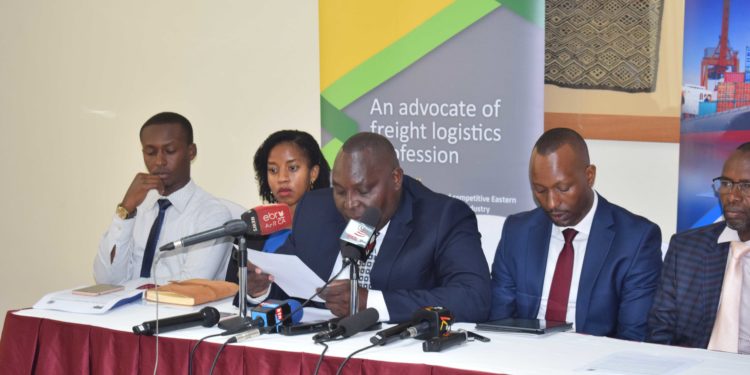Following intense consultations and input on the proposed bill to regulate freight forwarding industry, The Federation of East African freight forwarders (FEAFFA) and the Kenya International Freight and Warehousing Association (KIFWA) are taking nothing to chance with focus now shifting to parliament so that the bill will get an easy ride once it is presented to the floor of the house.
The bill will get final validation in February this year from Kenya International Freight Forwarders Association (KIFWA) members and its key partners among others in Mombasa and Nairobi. However, there is room for more views for those who may have not presented them.
“It has been a great journey since we presented the first draft to the stakeholders. We have had wonderful inputs from those who presented their views that have shaped this document,” Elias Rwamanyonyi Baluku, the Acting Executive Director of FEAFFA said.
“We do not want to take any chance and that is why we are focusing on bringing on board legislators with keen interest on the industry so that they can be of help to us when the bill goes to parliament,” Baluku said, adding that the agency plans to organize a dinner soon to consolidate such an engagement.
For last few years, FEAFFA, a non –profit private sector apex body of freight forwarders’ associations in the Eastern Africa region that was established in 2006 with other strategic partners, has carried a number of programme intended to professionalise the industry.
The East Africa Customs and Freight Forwarding Practicing Certificate (EACFFPC) is a mandatory training program to all Customs Agents that was was jointly implemented by the East Africa Revenue Authorities (EARAs) and the national freight forwarding associations affiliated to the FEAFFA since 201.
The course was offered to individuals already practicing or intending to practice in the clearing and forwarding industry throughout the East African region.
With assistance from TradeMark East Africa and USAID East Africa Trade and Investment Hub, the EACFFPC curriculum was reviewed, training materials improved and training capacity expanded in order to achieve the critical mass. By end of 2017, more than 5,500 clearing and forwarding agents had graduated throughout the region..
The USAID Hub and FEAFFA also launched an online learning platform to enhance Customs Clearing and Forwarding Agents’ (CFAs) application of the East African Community (EAC) Rules of Origin (RoO). The online platform is expected to boost the number of CFAs trained, which will diminish RoO-related choke points in the region and reduce the cost and time required for cargo to cross borders.
The platform was launched during the Global Logistics Convention 2018 held in Kampala, Uganda, from September 17-18. By allowing CFAs to access the training online, the Hub and FEAFFA was expanding learning opportunities.
Women, who may be constrained by traditional gender roles and need to tend to domestic duties after work, could now work on the RoO module at their own pace and convenience, as can CFAs who could not access physical classes.).
From June 2016 to May 2017, the Hub partnered with FEAFFA to improve CFAs’ application of the revised EAC RoO, which came into force in November 2015. The EAC Partner States revised the RoO to simplify them for the business community, harmonize them with other preferential trade regimes and provide clarity on the implementation of criteria, such as the change in tariff headings.
RoO affect market access opportunities and can act as non-tariff barriers (NTBs) if not correctly applied or used, raising the cost of producing goods and affecting firm competitiveness. They also influence the ability of firms to fully leverage preferential opportunities under the EAC integration process. The RoO online module is one part of the EACFFPC




